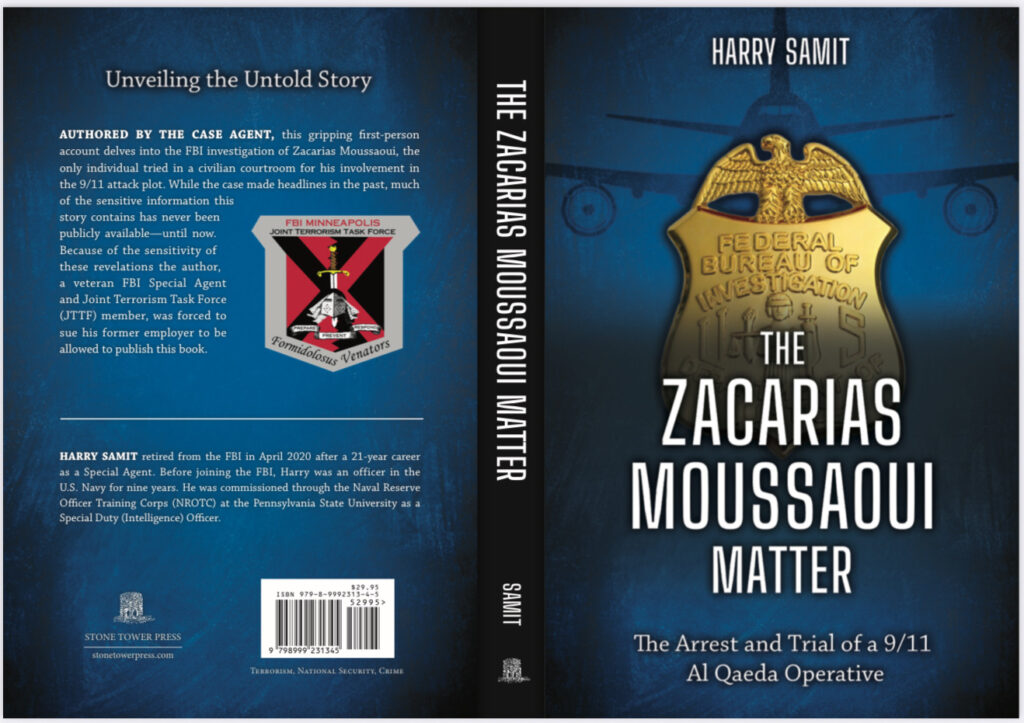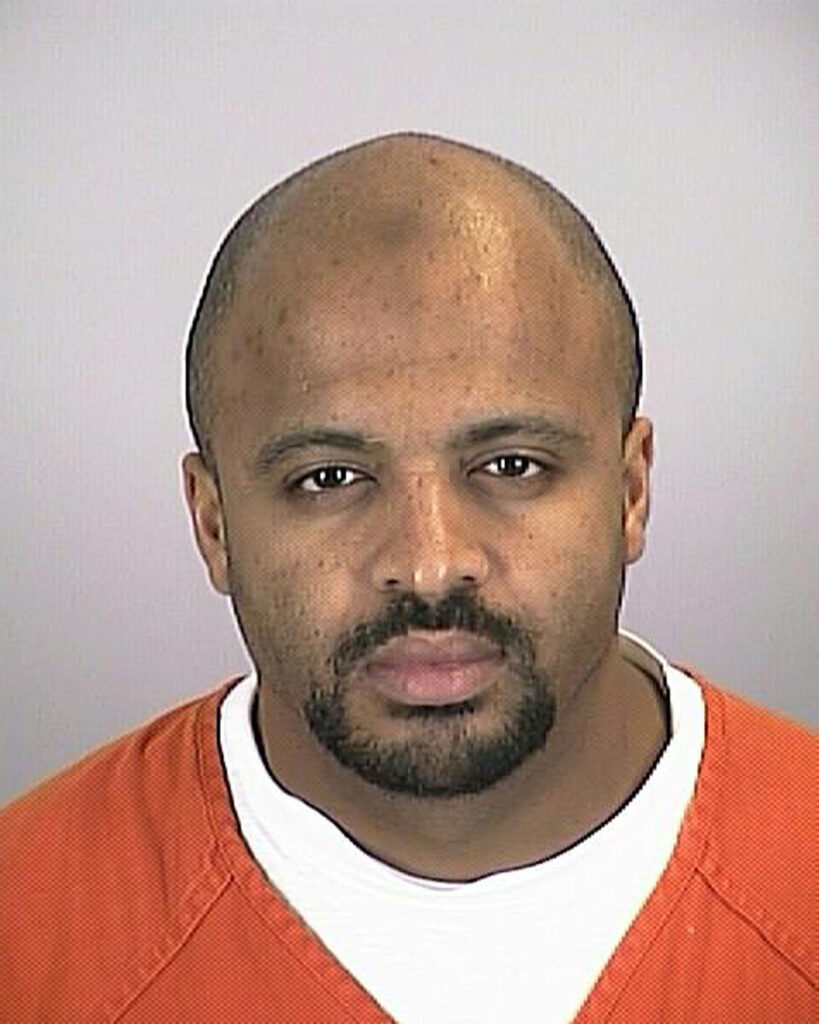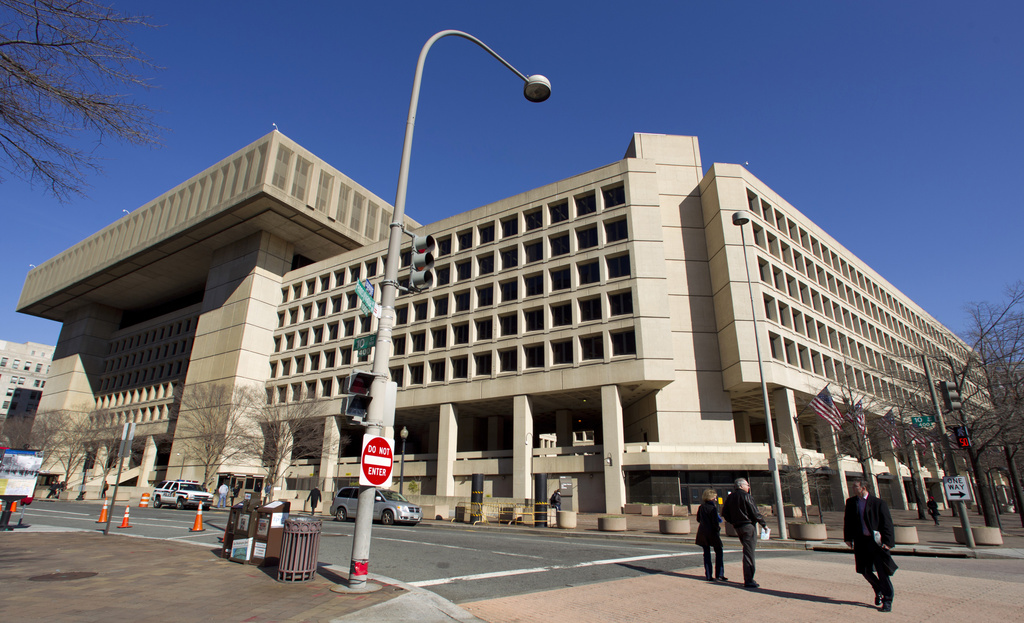FBI Agent’s Explosive New 9/11 Book on 20th Hijacker, Detailing Missed Signals, Survives Bureau’s Prolonged Efforts To Censor It
Harry Samit is finally out with his new book after spending years battling the DOJ to release his account of the Zacarias Moussaoui investigation — while James Comey got approval for his book just months after his firing.

In the mind of a former FBI special agent, Harry Samit, an investigator’s work on a murder case — whether they be at the local, state, or federal level — is seldom fully disclosed to the public, even when it goes to trial.
But when that case relates to the September 11, 2001, attacks — a globally orchestrated international terrorist event that resulted in the murder of nearly 3,000 individuals — and the only person tried and convicted for his connection with the attacks, Zacarias Moussaoui, a trial alone could never capture the story in its entirety.
Next month, Mr. Samit, a former Navy intelligence officer turned FBI Joint Terrorism Task Force investigator, will release “The Zacarias Moussaoui Matter: The Arrest and Trial of a 9/11 Al Qaeda Operative.” It is the first of a planned trilogy of books that he said will provide a warts-and-all account of the United States’s successful — and yet, tragic — prosecution of the alleged “20th hijacker.”
“It’s the first time in a quarter of a century now that people are going to learn what a band of low level investigators who were doing the right thing for the right reasons were able to achieve,” Mr. Samit tells the Sun.

Four years after he had first submitted the manuscript to the Department of Justice, the book is finally set for publication. While a former FBI director, James Comey, and a former deputy director, Andrew McCabe, were able to publish anti-Trump, tell-all books within months of their unceremonious dismissals, Mr. Samit, who spent more than two decades in the bureau before his retirement in 2020, ended up suing the justice department to ensure his three-book series would see the light of day.
While Mr. Samit describes his book’s upcoming release as both “cathartic” and “vindicating,” it is by no means sweet. The experience was marred by the FBI’s lengthy pre-publication process that he says included inexplicable delays and baseless accusations from his former employer.
“I was standing against this legal behemoth, and the accusations, the claims, and the friction, it was just painful and difficult,” Mr. Samit says.
It was August 17, 2001, inside the FBI’s Minneapolis field office, when Mr. Samit first met Moussaoui, a French-Morrocan national.

The FBI was tipped off about Moussaoui by an employee at the Pan Am International Flight Academy, who said Moussaoui was acting suspiciously while learning how to fly a Boeing 747. Mr. Samit and his partner arrested Moussaoui for overstaying his visa.
Mr. Samit, however, suspected that something more ominous was at play, and that Moussaoui was part of a planned hijacking of commercial aircraft. He said he and his team spent the next four weeks trying to convince FBI leadership at Washington to grant them a Foreign Intelligence Surveillance Act warrant to search Moussaoui’s laptop computer and his apartment in Oklahoma. Headquarters refused, saying there wasn’t enough evidence to show a crime existed.
Weeks later, the 9/11 attacks happened. If it were not for the FBI’s arrest, Moussaoui would have hijacked a fifth plane and, investigators believe, tried to fly it into the White House. Moussaoui later testified in court that the British “shoe bomber,” Richard Reid, was supposed to accompany him. Mr. Reid’s shoe bombing attempt would take place in December 2001.
Moussaoui was sentenced to life in prison in 2006.

In his book, Mr. Samit details the “blunders and misconduct” of FBI headquarters, which he said was guilty of “criminal negligence” for denying him search warrants. Mr. Samit’s book also discloses, for the first time, the “largely uninvestigated role” played by an Al Qaeda operative, Mohamed Kamal Elzahabi, in coordinating the 9/11 attacks.
Mr. Samit says that none of the national security investigations discussed in his book were opened later than 2003, and all were closed more than a decade ago.
In April 2021, Mr. Samit submitted his manuscript — at more than 900 pages — to the FBI’s Prepublication Review Office, which reviews materials like books and scripts written by current and former FBI employees before public release. Soon thereafter, Mr. Samit was told by the FBI PRO that the review of his proposal would take between 120 and 180 business days. In May 2021, he was notified that there were “sensitivities identified and deletions/edits will be required on a couple of pages.” Months later, Mr. Samit was told that “two agencies who have responded for their equities — both of which have identified sensitive information,” and that two additional agencies were in the process of finalizing their reviews.
The delays continued, as did the FBI’s requests to redact information that Mr. Samit said was either publicly available or unclassified, or both. By December 2021, the FBI told Mr. Samit it would be unable to promise him a firm closure date. Then there was radio silence. He tried to enlist the help of a local congressman, but that failed to get the FBI to respond.

“From my experience, the Bureau is not going to ignore a lawsuit,” Mr. Samit says.
In October 2022, more than 18 months after he submitted his manuscript for review, Mr. Samit sued the justice department for improperly redacting information, infringing on his constitutional right to publish an unclassified manuscript, and “failing to timely complete its prepublication classification review.”
Mr. Samit and his attorney, Mark Zaid, accused the FBI of using a review process that was ”tainted by over-classification and subjective efforts to suppress Mr. Samit’s protected speech.”
“The folks in the Prepublication Review Office, they’re nice people, but they don’t understand the first thing about FBI investigations. They’re not agents,” Mr. Samit says. He adds that the FBI PRO staff did not know how to go about clearing a hefty manuscript that details a complex and sensitive investigation.

The FBI eventually returned approved versions of the manuscript in multiple “tranches,” which still included redactions. Mr. Samit and his attorney continued to meet with FBI officials and justice department attorneys to appeal each redaction. He says he was accused of “irresponsibly leaking” upward of 40 pages of classified material.
“Even Justice Department prosecutors who handled related cases agreed the information in question was not classified,” Mr. Zaid tells the Sun.
The FBI declined to comment.
“Some of the redactions were reasonable. I don’t agree with any of them, because I was the case agent and I know more about the investigation than anybody in the FBI, certainly more than the people in the PRO,” Mr. Samit says.
Eventually, both sides resolved the case in June 2024. Mr. Samit estimates about 80 percent of his book survived the review process. It remains unclear to Messrs. Samit and Zaid why the FBI fought to prevent the “true untold history behind 9/11” from being told in full.
“Harry Samit was dedicated enough to fight to legally reveal as much information as possible. On the 24th anniversary of 9/11, we deserve that much,” Mr. Zaid tells the Sun.

